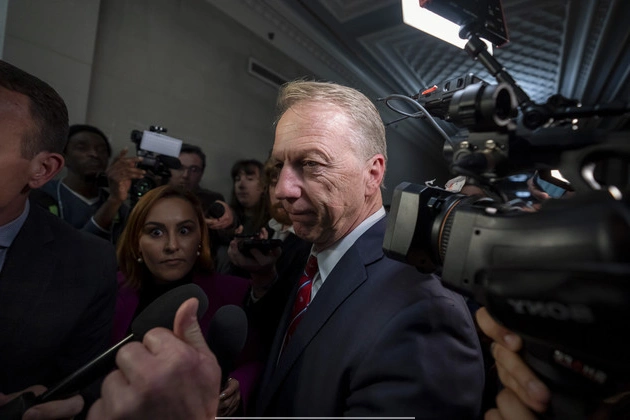
House GOP’s Approach to Tax Cuts and Immigration
House Republicans are relying on immigrants, regardless of their status, to support their extensive tax plan. While aiming to reduce taxes for many Americans, legislators are also seeking to prevent immigrants from accessing various tax benefits, including the popular Child Tax Credit, health insurance subsidies, and student-loan debt forgiveness.
Controversial Refundable Credits and Revenue Generation
The focus is on refundable credits that provide government payments when the benefit exceeds tax liabilities, with Republicans arguing against extending these payments to non-citizens. These measures are projected to contribute over $80 billion to the $4 trillion tax-cut proposal, aligning with the administration’s strict immigration policies.
Consequences on Vulnerable Populations
The proposed restrictions have sparked outrage among Democrats and immigration advocates, who warn of adverse effects on legal residents, particularly children who are U.S. citizens. An estimated two million children could lose access to the Child Tax Credit, risking increased financial strain on families.
Impact on Tax Collection and Compliance
While undocumented immigrants are required to pay taxes like all residents, eliminating benefits could discourage compliance, especially following collaborations between the IRS and Homeland Security to identify undocumented individuals. This approach may not only affect individuals but also communities at large, potentially reducing overall tax revenue.
Legislative Details and Immigrant Tax Benefits
The legislation aims to deny various tax benefits to undocumented immigrants by restricting claims through Individual Taxpayer Identification Numbers (ITINs). Requirements for Social Security numbers for tax credits and education benefits could pose challenges for mixed-status families and individuals.
Proposed Changes and Policy Implications
Republicans seek to limit Obamacare subsidies, overhaul student-loan debt forgiveness, and introduce a new tax on remittances to overseas recipients. These measures are intended to curb what some lawmakers perceive as incentives for illegal immigration, emphasizing the distinction between benefits for legal and illegal residents.
Reactions and Concerns
The GOP’s tax benefit adjustments have drawn criticism from Democrats, advocacy groups, and foreign governments like Mexico, highlighting potential disparities, double taxation concerns, and impacts on essential workers. The debate underscores the complex interplay between immigration policy, tax reform, and social welfare considerations.
Conclusion and Ongoing Debate
The discourse surrounding tax benefits for immigrants reflects broader debates on immigration policy, economic equity, and government spending. As lawmakers navigate these contentious issues, the implications for vulnerable populations, tax compliance, and social welfare programs remain subject to ongoing scrutiny and public discourse.











